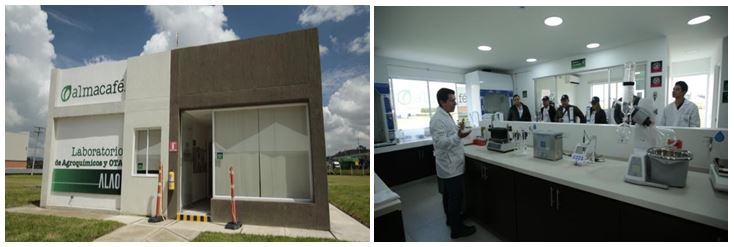981 veces visto
With an investment of about USD 524,000
-
It is the first in the sector and offers specialized analyses to identify traces of pesticides and fungal toxins in green, roasted and soluble coffee.
-
These modern facilities will help Colombian coffee to more easily comply with increasingly strict controls in a number of markets.


